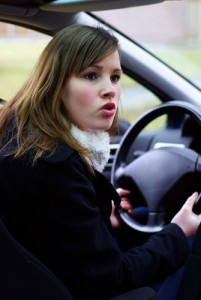
Researchers explain that driving experiences in an individual’s teenage years and early adulthood are highly influenced by their social surroundings. If riding with an impaired driver becomes a normal occurrence, then these teenagers are far more likely to repeat the behavior when they are able to drive. In fact, those teenagers who get their driver’s licenses earlier than others may be even more likely to drive while under the influence of alcohol or drugs, since they also tend to be more likely to be adventurous and take risks.
The results of this study reinforce the fact that prevention is key to preventing not only teenagers from driving while impaired, but also from riding with others who are impaired. Parents should never drive while impaired, and should closely monitor their teenagers’ driving behaviors, as well as those with whom their teenagers are riding. Parents should also reinforce the concept of a designated driver, or let their teenagers know that a sober ride is always available if they call for help. DWI is not only dangerous to impaired drivers; nearly one-half of the serious injuries and fatalities in drinking-related accidents were to passengers, not drivers.
Aside from the obvious risks of being involved in a serious motor vehicle accident, severe legal repercussions may occur for teenagers and young adults who choose to drink alcohol or use drugs and then drive. Individuals who are under the age of 21 and commit DUI are subject to special DUI laws and penalties that apply only to minors. For instance, the legal blood alcohol content (BAC) limit for adult drivers in Pennsylvania is 0.08 percent. The BAC for minors, however, is only 0.02 percent for a DUI conviction; additionally, if minors are found to have any amount of alcohol in their systems while driving, they can face suspension of their driver’s licenses for up to three months. Pennsylvania, like most states, has a zero-tolerance policy for minors who drive while impaired. As a result, those individuals who have a BAC greater than 0.02 percent while driving may face the following penalties:
- Jail time for up to two days
- Steep fines
- Mandatory attendance at alcohol driving safety classes
If you or a loved one has been arrested for underage DUI in the state of Pennsylvania, you will need the assistance and guidance of an experienced DUI attorney who can help you through this difficult process. Contact The Law Offices of Steven E. Kellis today to schedule your free consultation.